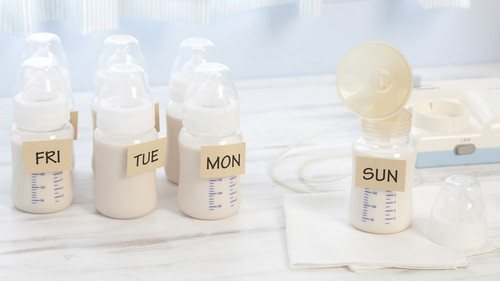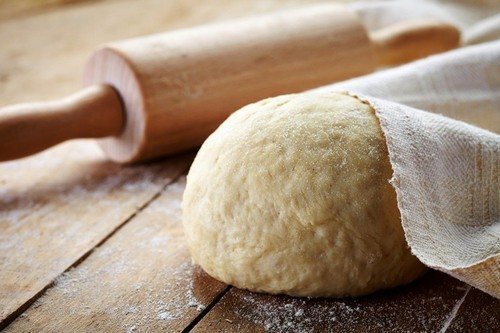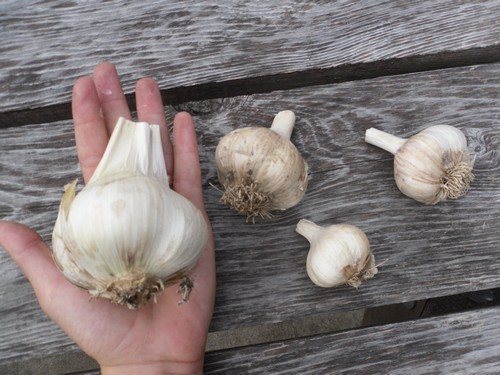Eggs are one of the most popular products in the kitchen. They are rarely bought “to the point”; they are usually purchased with a reserve and then kept at home. But, just like any products, they have guaranteed shelf life and ways to extend them.

Storage rules
They are perhaps the only natural product that nature supplies with ready-made packaging - the shell. To extend shelf life, you need to help natural packaging maintain the freshness of the filling it contains. Shelf life depends on various factors, but there are rules that are the same for any environmental conditions. Following these simple rules will extend the shelf life of any eggs.
- Shell preservation. An intact shell is designed for gas exchange between the air and the contents of the egg. And through the cracks of the shell, bacteria immediately penetrate inside, and the contents quickly deteriorate. Minor damage to the shell means that it is impossible to guarantee safety under optimal conditions. For the same reason, it is not recommended to stack eggs one on top of the other. Then the intact shell may crack during storage.
- It is better to lay eggs in a vertical position and always with the sharp end down. With this arrangement, the best gas exchange occurs, since the blunt end of the shell contains more pores, and they provide oxygen in and carbon dioxide out.
- The selected conditions must be kept constant.Frequent or sudden changes in temperature, light or humidity do not contribute to an increase in maintenance time.
- Do not wash before storing for a long time. An intact shell is covered with a thin protective film, which additionally prevents bacteria from penetrating inside. A simple wipe with a damp cloth will remove this film.
Exceptions to this rule must be made for waterfowl. Duck and goose eggs must be washed before laying. But here we are talking about consumer health.
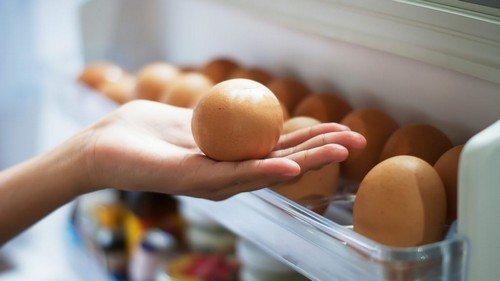
What factors influence safety
It is difficult to list all the factors influencing safety - there are many of them. But the main ones are:
- Temperature. The lower its value, the longer the eggs will remain fresh. But at minus 2 degrees, their contents freeze and lose some of their taste. Therefore, the optimal temperature to maintain is considered to be plus 1 – 4 degrees.
- Humidity. Oddly enough, in dry air the warranty period is reduced. For long periods, it is recommended to maintain a relative humidity of 80 – 85%. Humidity above 85% already has a negative effect on preservation.
- Storage term. This is the main unknown in determining the exact timing. When buying a store-bought product, you can find out the date of its production (sorting) - it is indicated on the packaging. But the conditions under which the eggs were stored prior to acquisition are completely unknown.
How to properly store eggs in the refrigerator
The refrigerator provides such temperature conditions that you can store raw eggs for 1 - 2 weeks without thinking about the conditions.For longer periods it is recommended:
- Do not place on the refrigerator door. Opening the door changes the temperature of all products located on it. This has a negative impact on safety.
- Do not place near strong-smelling products. Pungent odors actively penetrate the shell.
- Keep in closed containers. It’s better to use cardboard ones rather than plastic ones. Cardboard absorbs foreign odors and better retains moisture inside the container.
Refrigerated shelf life (days):
| Raw | |
| 1 – 4 degrees | 90 |
| 5 – 10 degrees | 35 |
| Minus 1 degree | 120 |
| Boiled | |
| Hard-boiled | 7 |
| In the "bag" | 2 – 3 |
| Soft-boiled | 1 — 2 |
How to store at room temperature
The maximum storage temperature is 20 degrees. If it is higher, it is difficult to guarantee anything.
- Humidity 75 – 85%.
- No direct sunlight.
- Keep in closed containers or wrap in paper.
- Maintaining constant parameters - no thermal changes, drafts.
For long-term storage, shell processing is necessary. For example, boiled Easter eggs last longer thanks to the paint on the shell.
How long can you store without refrigeration?
If the above conditions are met, eggs can be kept until consumed:
- Raw – up to 25 days;
- Hard-boiled – from 2 to 3 days;
- Easter – up to 5 days.
Which eggs last longer?
When selling, there are two categories - dietary and canteen. Dietary products must be sold no later than 7 days after demolition. For canteens, the sales period is 25 days. It is clear that the dietary product is more suitable for further storage.
Those with a brown shell last longer than white ones.But this is not due to color, but to the fact that brown shells are thicker, which has a positive effect on preservation.
How to store quail eggs?
Quail eggs, in addition to their small size, have three features:
- They have a strong shell, which when damaged does not crack, but becomes wrinkled. But it is also thinner, which reduces their shelf life;
- their contents do not rot over time, but dry out to almost complete disappearance;
- they contain the enzyme lysozyme, which prevents the formation of bacteria.
You can keep them:
- In the refrigerator - 60 days raw, and no more than 5 days cooked;
- Outside the refrigerator - 30 days at a temperature not exceeding 20 degrees. Boiled - no more than a day.
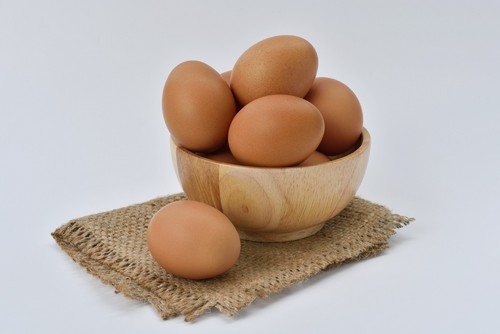
How to store goose eggs
They are larger in size than chickens and have a thicker shell. Keeping them fresh should be easier and longer, if not for one feature - they must be washed with soap or soda before storage. The pores on the thick shell themselves are larger than those of chicken. Therefore, dirt and microbes located on the shell penetrate inside more easily. Yes, washing shortens shelf life, but safety comes to the fore here. Keeping unwashed waterfowl eggs exposes you to the risk of a dangerous disease.
Due to their large size, standard shelves and containers are not suitable for them.
Store in the refrigerator at 2 – 12 degrees for two weeks.
How long does a duck egg last?
Features and storage conditions differ little from goose. Thorough washing is also necessary.
Storage duration is even shorter: in the refrigerator – 7 – 10 days (boiled – 2 – 3 days)
How long do hatching eggs last?
Storage requirements for the incubator are more stringent than for food consumption. The temperature should not fall below 12 degrees. Maintaining stable temperature and humidity ranges is a must.
If this is observed, the guaranteed shelf life is as follows:
| Breed | Duration, days |
| Chicken | 7 |
| Quail | 7 |
| Duck | 8 |
| Goose | 10 |
How long does a cracked egg last?
The broken egg must be poured into a tightly closed container. If unopened, it can be stored in the refrigerator for 2 to 3 days. Outside the refrigerator, it should be consumed within 12 hours, no later.
If you use the freezer, it will last for several months. But the taste will no longer be of the same quality.
How long can a peeled egg be stored?
Hard-boiled and peeled eggs lack any protection, and this is irreparable. Therefore, at room conditions they should not be kept for longer than 12 hours. The refrigerator can extend storage up to two days.



